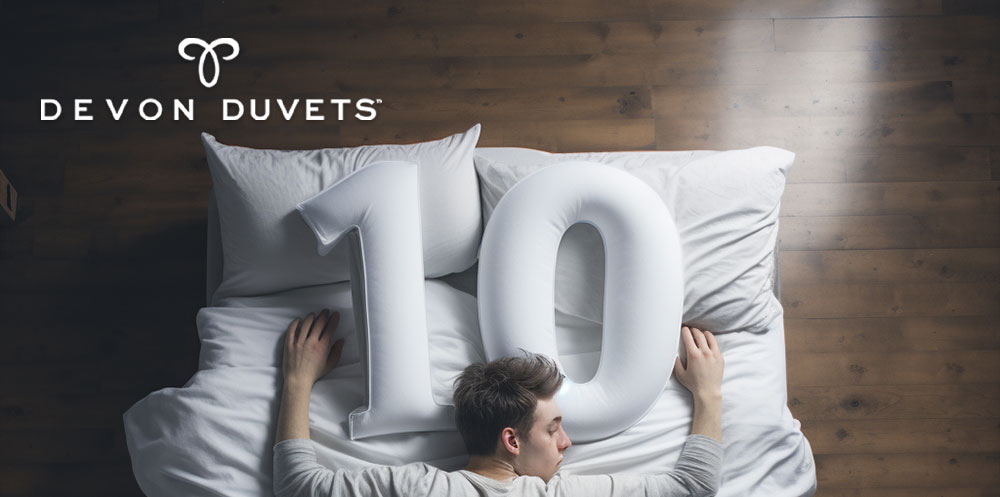10 facts about sleep

Sleep is as important as it is sometimes mysterious. Our body may be in a more restful state, but our brain is working to consolidate memories and processing information associated with learning. Recent research also found that sleep plays a housekeeping role in removing toxins from your brain that build up whilst you are awake. As part of the sleep process, we dream – even if we don’t always remember our dreams.
We’ve found some interesting facts about sleep – some intriguing and one or two you may already be aware of, but research into why we sleep is an on-going process.
- The ‘first night’ effect: Many of us sleep poorly on our first night in a new place and studies have shown that one hemisphere of the brain stays more alert when sleeping in an unfamiliar environment. This is a possible throwback to our more vulnerable days when we lived in the wild.
- Hallucinations: These can occur as you fall asleep (known as hypnagogic (as you fall asleep) or as you wake up (hypnopompic). These vivid and often strange sensory experiences are common and can include seeing shapes, patterns or figures, hearing voices or noises.
- Dream Incorporation: It’s very common for external stimuli to become part of our dreams. For example, a sound in the real world, such as music or a person talking, can be woven into our dreams.
- Memory and Sleep: Sleep plays a significant role in memory consolidation, whereby the brain processes and consolidates information from the day for long-term storage. Lack of sleep can severely impair this function, leading to poor memory recall.
- Energy Conservation: When we are in the deep sleep stage, our metabolism slows down by around 15% and our body temperature drops. This state of energy conservation is likely to have evolutionary roots, where less energy use at night would have been an advantage.
- Genetic influence on sleep: Some people have a genetic mutation that allows them to feel fully rested on less sleep than the average person. This is rare however and most adults need 7 – 9 hours sleep each night to feel properly rested.
- Keeping an eye open: Whales and dolphins sleep with one eye open and this is because they are conscious breathers that need to be awake to breathe. To avoid drowning, only one half of their brain sleeps at a time, and they keep one eye open to stay alert.
- Not everyone dreams in colour: Historical data from the 1940s and 1950s showed that a high percentage of the population (around 70%) regularly dreamed in black and white. This may have been influenced by the prevalence of black-and-white films and televisions at the time. More recent studies report that most people dream in colour and only around 12% dream in black and white. This phenome on appears to be more common in people over 55, whereas younger individuals rarely report dreaming in black and white.
- The internet disrupts sleep: We write about this a lot – but it is worth repeating that the use of social media at night, especially just before bedtime, can negatively impact sleep by increasing anxiety and disrupting melatonin (‘the sleep hormone’) levels due to blue light exposure. It stimulates the brain and can create irregular sleep patterns. Studies have linked social media use to poor sleep quality, insomnia, and short sleep.
- Dreams and problem solving: Have you ever woken up in the morning with a great idea – or knowing the solution to a problem from the day before? Some researchers believe that dreaming can be a form of problem solving, where the brain tries to work through unresolved issues or creative challenges. Famous examples include the periodic table being conceptualised in a dream by Dmitri Mendeleev, and Elias Howe conceiving the idea for the sewing machine needle from a dream. At Devon Duvets we believe that if you sleep well, you dream well – and if you dream well, anything is possible.
Although waking up once or twice a night isn’t unusual (and most of us do this without being fully aware), continually disrupted sleep due to feeling too hot or too cold is a problem. This can be helped by our choice of bedding. Bedding that is natural, breathable and temperature regulating will work with your core body temperature during the night, aiding a more restful sleep. Opting for a duvet filled with wool (long considered the king of breathable fibres) will help to achieve this and wool is also dust mite resistant, so ideal for those affected by dust mite allergens.
Our luxurious, individually handcrafted British wool duvets are natural and chemical free and with a fantastic drape that’s been especially designed to ease you into peaceful slumber. If you have any questions about choosing the right duvet for your sleep needs, then do get in touch with the team and we’ll be happy to guide you.


